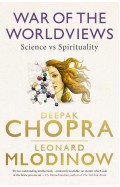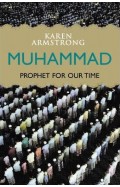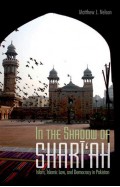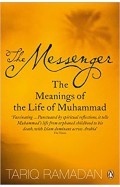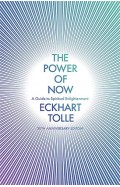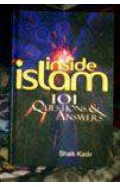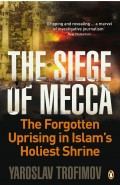- Home
- Hot Picks: Flat 20% Off
- The Eleventh Hour the Spiritual Crisis of the Modern World in the Light of Tradition and Prophecy
The Eleventh Hour the Spiritual Crisis of the Modern World in the Light of Tradition and Prophecy
By: Martin Lings
-
Rs 450.00
- Rs 600.00
- 25%
You save Rs 150.00.
Due to constant currency fluctuation, prices are subject to change with or without notice.
THE ELEVENTH HOUR- The Spiritual Crisis of the Modern World in the Light of Tradition and Prophecy
The Spiritual Crisis of the Modern World in the Light of Tradition and Prophecy Martin Lings The Eleventh Hour gives us from the outset powerful reasons for believing that we have now reached a point in time from which `the end’— whatever that may mean— is already in sight without being immediately imminent. In other words, we are now at an hour, which is neither the tenth nor the twelfth. The ‘twelfth hour’ will mark the conclusion, not of time as a whole, btit of one of the great cycles of four ages, which will be followed by another such cycle; and he argues that what Judaism, Christianity and Islam call ‘the end of the world’ can be understood in the same non-absolute way. He analyses first of all the negative aspects of the modern world, then its positive aspects, showing it to be, all things considered, far worse and yet far better than is generally supposed. The future is touched on no more than briefly, but our attention is drawn to a considerable weight of prophetic evidence that we are on the brink of a world-wide devastation. But despite these ‘days of destruction’, after which a brief positive aftermath is also predicted, and despite some of the appalling evils of the present, most reade
| Book | |
| What's in the Box? | 1 x The Eleventh Hour the Spiritual Crisis of the Modern World in the Light of Tradition and Prophecy |
THE ELEVENTH HOUR- The Spiritual Crisis of the Modern World in the Light of Tradition and Prophecy
The Spiritual Crisis of the Modern World in the Light of Tradition and Prophecy Martin Lings The Eleventh Hour gives us from the outset powerful reasons for believing that we have now reached a point in time from which `the end’— whatever that may mean— is already in sight without being immediately imminent. In other words, we are now at an hour, which is neither the tenth nor the twelfth. The ‘twelfth hour’ will mark the conclusion, not of time as a whole, btit of one of the great cycles of four ages, which will be followed by another such cycle; and he argues that what Judaism, Christianity and Islam call ‘the end of the world’ can be understood in the same non-absolute way. He analyses first of all the negative aspects of the modern world, then its positive aspects, showing it to be, all things considered, far worse and yet far better than is generally supposed. The future is touched on no more than briefly, but our attention is drawn to a considerable weight of prophetic evidence that we are on the brink of a world-wide devastation. But despite these ‘days of destruction’, after which a brief positive aftermath is also predicted, and despite some of the appalling evils of the present, most reade
A Return to the Spirit Questions and Answers -
By: Martin Lings
Rs 666.00 Rs 740.00 Ex Tax :Rs 666.00
Muhammad PBUH is Life Based on the Earliest Sources -
By: Martin Lings
Rs 1,080.00 Rs 1,200.00 Ex Tax :Rs 1,080.00
The Eleventh Hour the Spiritual Crisis of the Modern World in the Light of Tradition and Prophecy
By: Martin Lings
Rs 450.00 Rs 600.00 Ex Tax :Rs 450.00
Symbol and Archetype A Study of the Meaning of Existence
By: Martin Lings
Rs 585.00 Rs 650.00 Ex Tax :Rs 585.00
The Holy Quran Translations Of Selected Verses
By: Martin Lings
Rs 3,446.25 Rs 4,595.00 Ex Tax :Rs 3,446.25
The Holy Qur'an: Translations of Selected Verses
By: Martin Lings
Rs 702.00 Rs 780.00 Ex Tax :Rs 702.00
Zubin Mehta: A Musical Journey (An Authorized Biography)
By: VOID - Bakhtiar K. Dadabhoy
Rs 472.50 Rs 1,050.00 Ex Tax :Rs 472.50
The Holy Quran Translations Of Selected Verses
By: Martin Lings
Rs 3,446.25 Rs 4,595.00 Ex Tax :Rs 3,446.25
The Quest For Meaning: Developing A Philosophy Of Pluralism
By: Tariq Ramadan
Rs 1,255.50 Rs 1,395.00 Ex Tax :Rs 1,255.50
War of the Worldviews: Science vs Spirituality
By: Dr Deepak Chopra
Rs 646.75 Rs 995.00 Ex Tax :Rs 646.75
In the Shadow of Shari'ah: Islam, Islamic Law and Democracy in Pakistan
By: Matthew J Nelson
Rs 2,605.50 Rs 2,895.00 Ex Tax :Rs 2,605.50
The Messenger: The Meanings of the Life of Muhammad
By: Tariq Ramadan
Rs 2,335.50 Rs 2,595.00 Ex Tax :Rs 2,335.50
The Ismailis Their History And Doctrines 2nd
By: Farhad Daftary
Rs 581.75 Rs 895.00 Ex Tax :Rs 581.75
The Holy Quran Translations Of Selected Verses
By: Martin Lings
Rs 3,446.25 Rs 4,595.00 Ex Tax :Rs 3,446.25
No recently viewed books available at the moment.
Zubin Mehta: A Musical Journey (An Authorized Biography)
By: VOID - Bakhtiar K. Dadabhoy
Rs 472.50 Rs 1,050.00 Ex Tax :Rs 472.50
A Return to the Spirit Questions and Answers -
By: Martin Lings
Rs 666.00 Rs 740.00 Ex Tax :Rs 666.00
Muhammad PBUH is Life Based on the Earliest Sources -
By: Martin Lings
Rs 1,080.00 Rs 1,200.00 Ex Tax :Rs 1,080.00
The Eleventh Hour the Spiritual Crisis of the Modern World in the Light of Tradition and Prophecy
By: Martin Lings
Rs 450.00 Rs 600.00 Ex Tax :Rs 450.00
Symbol and Archetype A Study of the Meaning of Existence
By: Martin Lings
Rs 585.00 Rs 650.00 Ex Tax :Rs 585.00
The Holy Quran Translations Of Selected Verses
By: Martin Lings
Rs 3,446.25 Rs 4,595.00 Ex Tax :Rs 3,446.25
The Holy Qur'an: Translations of Selected Verses
By: Martin Lings
Rs 702.00 Rs 780.00 Ex Tax :Rs 702.00
The Holy Quran Translations Of Selected Verses
By: Martin Lings
Rs 3,446.25 Rs 4,595.00 Ex Tax :Rs 3,446.25




















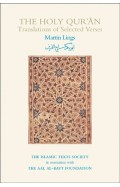

-120x187.jpg?q6)






